For additional information relating to this article, please contact:
October 27, 2016EMPLOYMENT, EARNINGS AND HOURS, AUGUST 2016 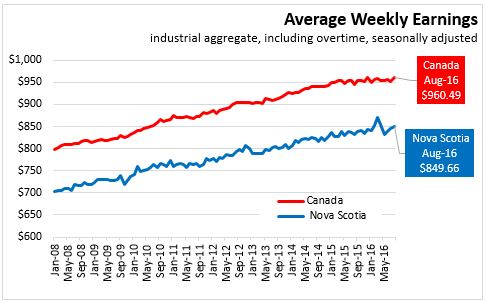
Nova Scotians' average weekly earnings (including overtime, seasonally adjusted) increased $4.73 per week (0.6 per cent) from July to $849.66 in August 2016. The current level is 2.1 per cent above the level in August of last year. Canadians' average weekly wages increased 0.8 per cent from July to $960.49 in August 2016, a 1.6 per cent increase over August 2015, partly as a result of low earnings in August last year.
Increases for June, July and August in Nova Scotia were preceded by decreases in April and May. Average weekly wages reached a historic peak of $870.35 in March 2016, 5.2 per cent higher than the same level in March 2015. It should be noted that the new figures released for August also include revisions for July.

In August 2016, all provinces saw monthly increases in average weekly wages except Newfoundland and Labrador and Alberta. The largest increase was in British Columbia (1.5 per cent). On a year-to-date basis, all provinces with the exception of Alberta and Newfoundland and Labrador experienced average wage increases. New Brunswick had the highest increase (2.6 per cent) compared to the same period last year.

In August 2016, earnings in goods producing industries in Nova Scotia decreased 0.4 per cent on a month-to-month basis. Goods producing industries average wages increased 1.2 per cent year-over-year.
Service producing industries wages increased 0.9 per cent month-to-month, and increased 2.6 per cent year-over-year.
On a year-to-date basis, average weekly earnings are 1.8 per cent higher in the first eight months of 2016, with a 0.6 per cent increase in goods sector and a 2.0 per cent increase in the services-producing sector. Increases are largest in the real estate and rental and leasing, management of companies and enterprises, and education services sectors.
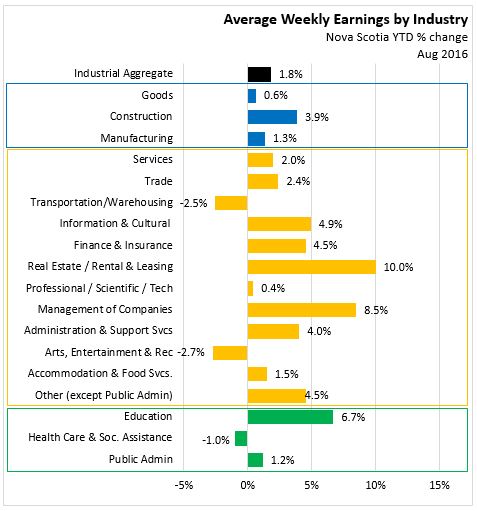
EMPLOYMENT
In August 2016, Nova Scotia had 401,509 payroll employees, a 0.1 per cent increase month-to-month, and 0.1 per cent above levels observed in August of last year. Canada had 15.9 million employees, down 0.3 per cent from July 2016, and 1.0 per cent above levels observed in August 2015.
On a year-to-date basis, Nova Scotia had 401,985 payroll employees, essentially unchanged compared to the same period in 2015.
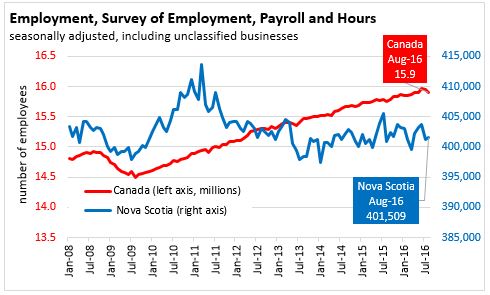
REFERENCE TABLES - YEAR TO DATE FIGURES
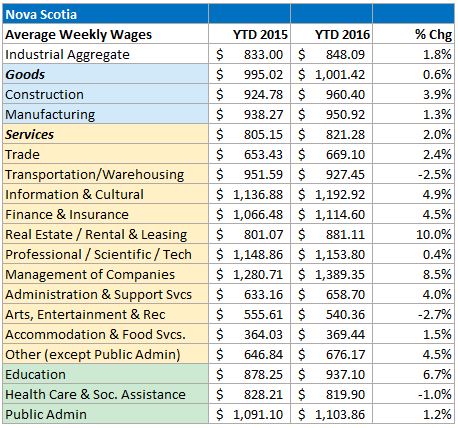
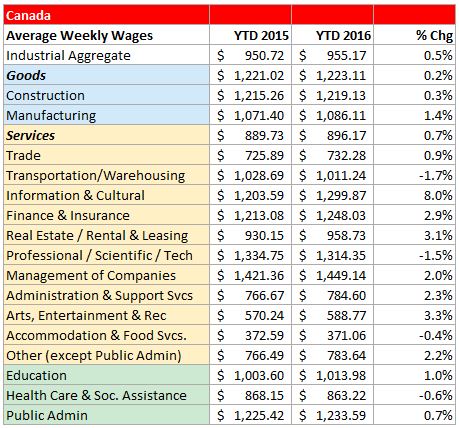
Source: Statistics Canada, Survey of Employment, Payroll, and Hours. CANSIM Table 281-0063